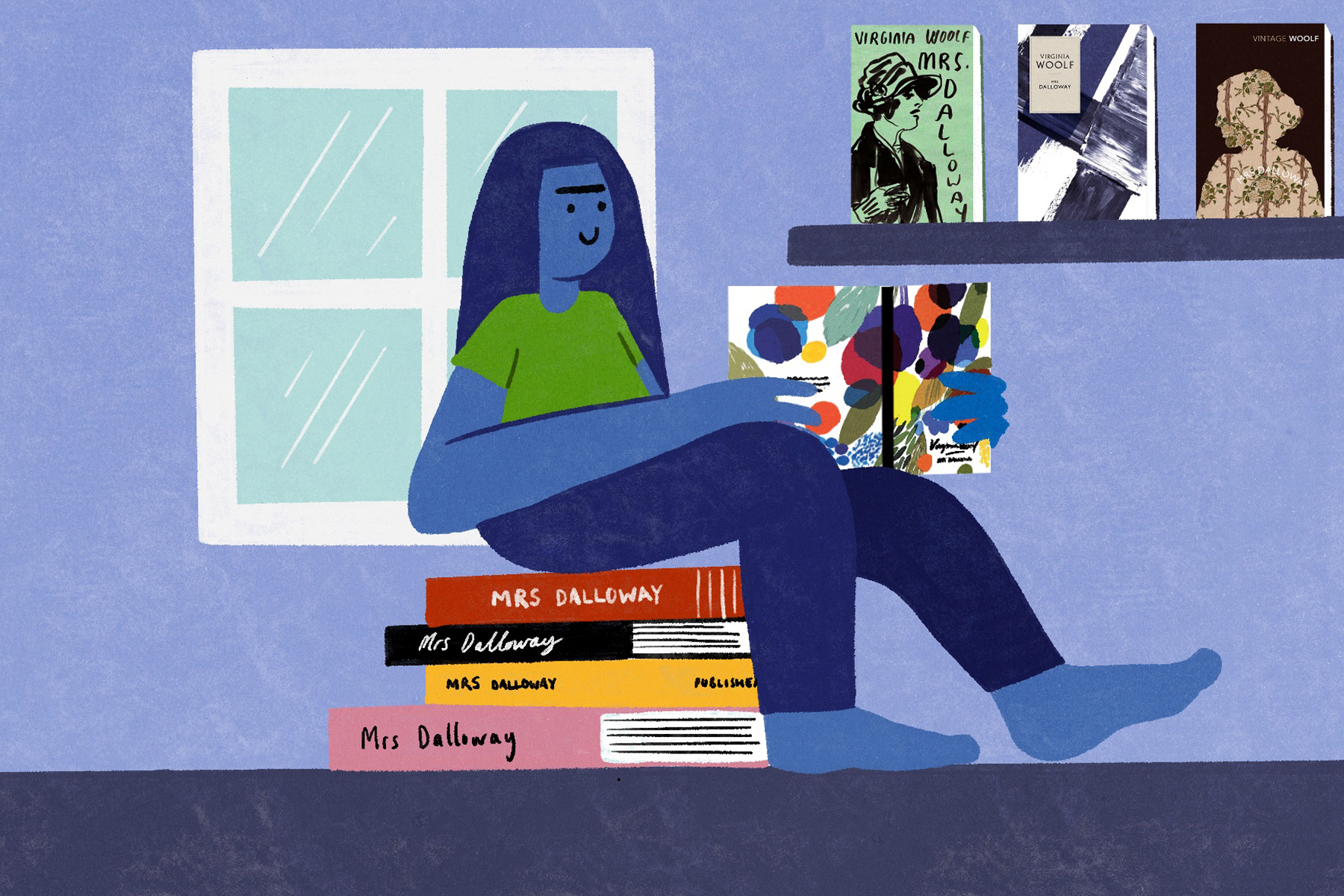
On the particular pleasures of re-reading
Are you a one-time-only kind of reader? Or do you go back to same titles time and time again? Here were explore the multifaceted joys of the latter approach, and suggest some books perfect for a second, third or even fourth time around.
“Curiously enough, one cannot read a book; one can only reread it,” said Vladimir Nabokov during his Lectures on Literature (later published into a book). “A good reader, a major reader, and active and creative reader is a re-reader.” He would know: anybody familiar with reading Lolita more than once will note the spoiler smuggled into its second page.
Do you re-read books? Do certain old favourites linger close to hand, spine-cracked and tatty-cornered, while immaculate new hardbacks sit on the to-read pile hopefully waiting for attention?
If so, you’re not alone: C. S. Lewis equated re-reading to spending time with his favourite friends – “I’d never be satisfied to limit myself to just one experience each with my favourite people.” To return briefly to Nabokov, it was to re-reading his and Roland Barthes’ work that Zadie Smith dedicated the first essay in her collection, Changing My Mind. Ian Rankin, famed for writing gnarly Scottish crime novels, frequently returns to Jilly Cooper’s sex-filled romance Rivals for “pure escapism”. As for Cooper herself, she’s a fan of re-reading Proust, who regularly calls back readers for another flick through the pages.
'Sometimes authors discover the real impact of beloved books on their own work only when re-reading them'
Why re-read? There are all sorts of reasons. One of them is inspiration: while writing her forthcoming book, A Slow Fire Burning, author Paula Hawkins re-read plenty. Books by Shirley Jackson, The Cement Garden by Ian McEwan, Pat Barker’s Blow Your House Down. Tessa Hadley discovered Elizabeth Bowen at 13, while graduating to the adult’s section of the library; forgot about her, and then re-discovered her 20 years later. “Now,” she wrote in the LRB last year, “I’ve never not got something of hers open on my desk.” Sometimes authors discover the real impact of beloved books on their own work only when re-reading them: Ursula K. LeGuin’s The Tombs of Atuan “left such a mark” on novelist Alexander Chee that when he picked it up, decades later, he “realised with a small shock that this mark later turned into my second novel, The Queen of the Night.”
Journalist and critic Vivian Gornick had to read things again as part of her career, but came to the conclusion in Unfinished Business: Notes of a Chronic Re-Reader, that re-reading could help one achieve “semblance of an integrated self” – ergo, make amends for our earlier misdemeanours, literary and otherwise. The book is dedicated to the revelations that emerge when she tackles titles she’s not read for years, and finds out both new things about them and herself.
One of the more obvious benefits to re-reading is that, if done at pertinent intervals, the process can tell the reader a lot about how they’ve changed since they last picked up the book. Writer Tanya Shadrick turned to the diaries of Sylvia Plath, Anais Nin and Virginia Woolf at the ages of 20, 30, 40 and intends to do so again at 50, “to feel myself arriving (or going beyond, in Plath’s case) at their ages and find new perspectives in them as I grow older.”
'There are those who return to Mrs Dalloway on 16 June, the day it is set on'
And then there’s the ritualistic re-reading. Perhaps you’re the type to take The Silence of the Lambs on every holiday, or dedicate the weeks between late September and Christmas to revisiting Philip Pullman’s His Dark Materials. Jane Eyre and Bleak House might be your go-to November reading material, or I Capture The Castle with the onset of summer. There are those who return to Mrs Dalloway on 16 June, the day it is set on, and others who spend the days between February 2 and Bloomsday (also 16 June) re-reading a chapter of Ulysses by James Joyce. For some people, the tug to re-read is simple and personal: journalist Tom Lamont associates Howard’s End with “the time I met my wife, opened every year since.”
Perhaps what a lot of re-reading boils down to is comfort: the familiarity that comes from the perfume of a loved one or an in-joke with a friend. Certain books are able to hold us on the bad brain days, or the back-to-school days, in a way that little else can. No wonder we want to read them again.
What did you think of this article? Email editor@penguinrandomhouse.co.uk and let us know.
Image: Mica Murphy / Penguin